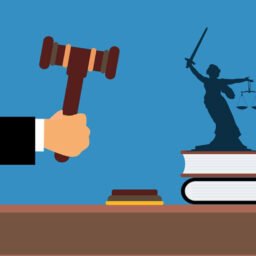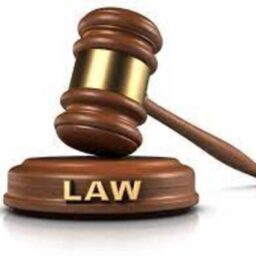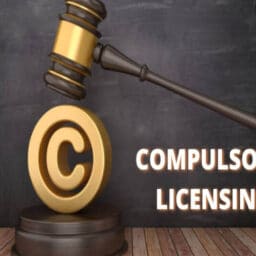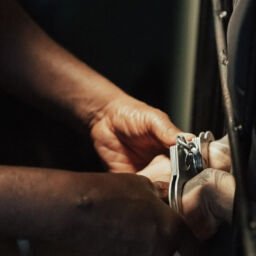Introduction
Supreme Court also known as the Apex Court of India. Besides the apex court, this court where the last and highest appeal is done in India, here the term last refers to as that all the appeals from all the lower courts including the High Court, appeals on who’s these courts have given their judgment but the appellant is not satisfied with the decision of the courts so he has decided to move to the court with supreme powers that is Supreme Court.
This practice of appellate jurisdiction is considered as the most powerful power which is exercised by the courts starting from the lower court to the Supreme Court. Though this practice gives power to the courts according to the seniority level besides that it gives benefit to the people also because the judgment which will be final will at least give satisfaction to the appellant.
Besides in case of infringement of fundamental rights, there are certain situations in which the Supreme court give their judgment when an appeal has been done, those situations include which the first one which is very common also, is when the High court has given the judgment and the appellant is not satisfied now so he moves on to the Supreme Court, the second situation includes the case where the High Court thinks it fit that this case needs to be dealt with the judicial mind of judges of Supreme Court and the third case is where the case requires the involvement of Substantial question of law, where the reasoning could only be provided by the Supreme Court because our system of law takes the precedent from another case, so in that sense, all the judgments should have been passed after viewing it deeply and within the purview of the law. Though appeals could be done in civil, criminal, and constitutional matters in this research paper we will be looking towards the appeals in civil matters only.
Position under the constitution for the civil matters
Under Article 133 of the Constitution, appeals could be taken to the supreme court which includes the appeals made by the appellant when the High Court has already given their judgment in that case and the other way include an appeal that involves the property worth 20,000 Rupees. Article 133(1) states that (1) “An appeal shall lie to the Supreme Court from any judgment, decree or order in a civil proceeding of a High court in the territory of India if the High Court certifies that the case is a fit one for an appeal to the Supreme Court.”
In the case of Veeraya v. Subbiah Choudhary and others, it was held that “The right of appeal is a vested right and such a right to enter the superior court acquires to the litigant and exists as on from the date the list commences.” Though being having powers with the Supreme Court but still cases cannot directly come to the Supreme Court, lower courts also have to apply their judicial mind and come to a particular conclusion before the appellant takes the case to the Supreme Court.
Procedure at Hearing
- Application to Court whose complained of
(1) Whoever desires to appeal the Supreme Court shall apply by petition to the Court whose decree is complained of.
(2) Every petition under sub-rule (1) shall be heard as expeditiously as possible and endeavour shall be made to conclude the disposal of the petition within sixty days from the date on which the petition is presented to the Court under sub-rule (1).
- Application of leave or certificate
An appeal at the Supreme Court could only be done when the High Court has given their judgment in that particular case or High Court thinks it fit that this case requires the substantial law from the perspective of the Supreme Court. In other words, a party is only competent to go to Supreme Court when the High Court has already given the assent or certificate stating that this party is now eligible to go to the upper court now.
- Security required for the grant of certificate
About the security, it has been mentioned in the Order XLV Rule 7 of CPC, 1908 which state that after the amendment a provision has been added in the constitution, as before there was no article mentioned in the constitution that stated the time limit or how the application could be filed, but after this 44th amendment in the Constitution, a provision was added which depicts and highlights upon the time limit till when such application could be filed. The provision states that a time frame of ninety days is given within which the appeal could be done to the Supreme court after the party has furnished the security cash and also have deposited the money which might be required for the printing, translating the previous order from the High court, then all this is done then the documents are being sent to the Supreme Court.
Under Order XLC Rule 9 of CPC, 1908, this states that court under at any time, if thinks fit than it can revoke the security and also Order XLC Rule 10 of CPC, 1908 if Supreme court thinks that once the admission of appeal has been done but before the appellant submits the copy of the record, Supreme Court can even ask the appellant to submit more securities upon the further direction of the Supreme court.
- Admission of the appeal for further procedure
This is the stage where if after depositing all the required securities and the copy of the order upon the direction of the court then court declares that the appeal has an admission of the appeal and informs about the admission of the appeal to the appellant and then later on the further proceeding of the appeals happens.
- Revocation of appeal
Court also has the power that in certain cases if the document or securities asked by the Court has not been submitted by the appellant then the court can also reject or revoke the appeal made by the appellant.
- Failure to comply with the order
When the appellant fails to comply with the orders as directed by the court, then the court has discretion that to reject the appeal and not proceed further on that particular appeal.
Powers of court pending appeal
- Notwithstanding the grant of a certificate for the admission of any appeal, the decree appealed from shall be unconditionally executed, unless the Court otherwise directs.
- The Court may, if it thinks fit, on special cause shown by any party interested in the suit, or otherwise appearing to the court,
- Impound any movable property in dispute or any part thereof, or
- Allow the decree appealed from to be executed, taking such security from the respondent as the Court thinks fit for the due performance of any order which the Supreme Court may make on the appeal, or
- Stay the execution of the decree appealed from, taking such security from the appellant as the Court thinks fit for the due performance of the decree appealed from, or of any decree or order which the Supreme Court may make on the appeal, or
- Place any party seeking the assistance of the Court under such conditions or give such other direction respecting the subject matter of the appeal, as it thinks fit, by the appointment of a receiver or otherwise.
Conclusion
Supreme Court is considered as the apex court and why it is called the apex court we have already seen its main reason for being called so, which is because of the appeal in the cases. Since it is the highest court where an appeal could be done because of that also it is also called the court of appeal. In the Indian Constitution, this power has been vested under Articles 132, 133, 34, 134A. these articles tell us about the supreme power of the Supreme Court, which is that if any appellant is not satisfied with the judgment of the lower courts then he has a right to appeal in the highest form which is the Supreme Court.
As discussed in the above points also where the conditions are being laid down which highlights the procedure through which an appeal could be done in SC for one’s satisfaction if they do not agree with the judgment given by the High Court or any other lower courts. If the appellant wants to get his appeal approved then he has to follow all the conditions because appealing is not the right which everyone could avail, it’s just considered as a privilege that could only be availed through the medium of the fulfilment of the conditions as mentioned in the Constitution.
Author(s) Name: Kajal Tanwar (O.P Jindal Global University, Sonipat)
















